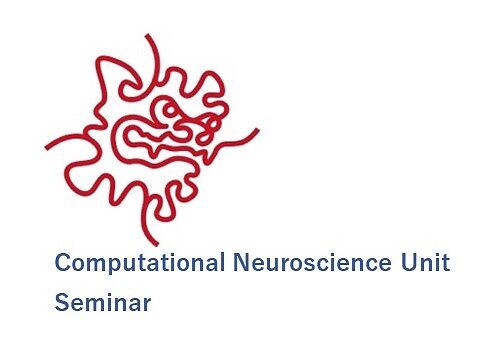【Canceled】Seminar: "Modeling neuronal, astroglial and synaptic mechanisms to explain cortical network dynamics"

Date
Location
Description
Title: Modeling neuronal, astroglial and synaptic mechanisms to explain cortical network dynamics
Speaker: Prof. Marja-Leena Linne
Tampere University, Faculty of Medicine and Health Technology, Computational Neuroscience Group(https://research.tuni.fi/computational-neuroscience/).
Abstract:
We are focusing on understanding the roles of neuronal and non-neuronal mechanisms in cortical network dynamics. Accumulating experimental evidence from different brain areas suggests that non-neuronal cells, including astroglia, contribute to multiple brain functions, including neurotransmission, plasticity and memory, in addition to the conventional roles in brain homeostasis, metabolism and brain disorders. However, the details of astroglial molecular and cellular mechanisms underlying these functions are not well understood.
I will introduce a data-driven computational modeling framework developed by us to explore the contribution of individual synaptic and cellular mechanisms on network dynamics. We use microelectrode arrays to observe variables of network dynamics extracellularly, pharmacological manipulation to probe the synaptic and network-level activity, and computational techniques to understand the roles of specific neuronal, non-neuronal and synaptic mechanisms. Our recent results highlight the importance of excitatory and inhibitory synapses in burst dynamics and demonstrate a unique AMPA and GABAA receptor-mediated interaction between fast excitation and inhibition. Additionally, I will discuss our studies towards developing data-driven models of cortical astrocytes and astrocyte-neuron interactions for network dynamics in health and disease.
References:
T. Manninen, R. Havela, M.-L. Linne. Computational models for calcium-mediated astrocyte functions. Frontiers in Computational Neuroscience 12:14, 2018.
H. Teppola, J. Acimovic, and M.-L. Linne. Unique features of networks bursts emerge from the complex interplay of the excitatory and inhibitory receptors in rat cortical neocortical networks. Frontiers in Cellular Neuroscience 13:377, 2019.
T. Mäki-Marttunen, T. Kaufmann, T. Elvsåshagen, A. Devor, S. Djurovic, L.T. Westlye, M.-L. Linne, M. Rietschel, D. Schubert, S. Borgwardt, M. Efrim-Budisteanu, F. Bettella, G. Halnes, E. Hagen, S. Næss, T. Vefferstad Ness, T. Moberget, C. Metzner, A.G. Edwards, M. Fyhn, A.M. Dale, G.T. Einevoll, O.A. Andreassen. Biophysical Psychiatry - how computational neuroscience can help to understand the complex mechanisms of mental disorders. Frontiers in Phychiatry 10: 534, 2019.
Biography: Prof. Marja-Leena Linne is Head of Computational Neuroscience Group (CNS; https://research.tuni.fi/computational-neuroscience/ ) at Tampere University, Faculty of Medicine and Health Technology, Finland. As an electrical engineer with a Ph.D. in information technology, she has combined neuroscience and engineering to become a wet-lab electrophysiologist and computational neuroscientist. She currently develops biophysically and biochemically detailed computational models of neural systems to explain the complex mechanisms underlying neurotransmission and neuroplasticity. Dr. Linne is a co-leader of the Theoretical Neuroscience Subproject in the EU FET Flagship Human Brain Project. She is past board member of Organization for Computational Neuroscience, and she has served in training committees of international neuroscience organizations, including Neuroinformatics Coordination Facility and Federation of European Neuroscience Societies. She is the founder of Baltic-Nordic Summer School in Neuroinformatics.
Subscribe to the OIST Calendar: Right-click to download, then open in your calendar application.



